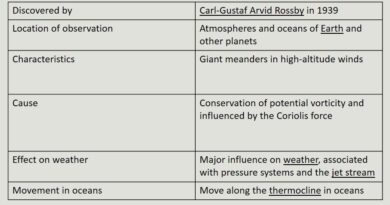Earth Hour
Context:
Every year on 26th March, people around the planet take an hour off electricity by switching off their lights at homes and offices as a show of support for conservation of energy during the World Earth Hour.
2022 Theme: Shape Our Future
Contents
About Earth Hour
- Earth Hour is a global movement for environmental conservation. The World Wide Fund for Nature (WWF) started it in 2007.
- It is an annual event, that takes place on the last Saturday of March. Millions of people in over 180 countries and territories participate in it by turning off their lights.
- Aim: It aims to call attention to global warming, loss of biodiversity, and climate change.
- During the Earth Hour, people turn off their lights for an hour as a sign of global solidarity.
- Significance: This hour showcases the need to take action on the pressing issue of global climate change. Further, it promotes awareness about environmental issues on a public platform.
Objectives
- Earth Hour aims to increase awareness and spark global conversations on protecting nature, tackling the climate crisis, and working together to shape a brighter future for humans.
- It calls for the world to unite in a moment of solidarity for people and the planet.
- The practice has become a catalyst for dramatic change and collective action towards protecting the environment.
- The symbolic lights-out Earth Hour has become the world’s largest grassroots movement to raise awareness about climate change and energy conservation and to assure a sustainable, brighter future.
Earth Day
- Earth Day is an annual event, celebrated on April 22.
- Worldwide events are held to demonstrate support for environmental protection. The theme of Earth Day 2019 is “Protect Our Species”.
- It was first celebrated in 1970, and is now coordinated globally by the Earth Day Network and celebrated in more than 193 countries each year.
- The idea of commemorating such a day was propounded by Gaylord Nelson, an American environmentalist and politician.
- According to the United Nations, International Earth Day is celebrated to remind each of us that the Earth and its ecosystems provide us with life and sustenance.
- The Earth Day also recognizes a collective responsibility, as called for in the 1992 Rio Declaration (Earth Summit), to promote harmony with nature and the Earth to achieve a just balance among the economic, social and environmental needs of present and future generations of humanity.
- This day provides an opportunity to raise public awareness around the world to the challenges regarding the well-being of the planet and all the life it supports.
Earth Day Network
- Earth Day Network is a nonprofit organization whose mission is to diversify, educate and activate the environmental movement worldwide.
- EDN main office is located in Washington DC, USA.
What are the Major Indian Initiatives for Energy Conservation?
- Perform Achieve and Trade Scheme (PAT): It is a market based mechanism to enhance the cost effectiveness in improving the Energy Efficiency in Energy Intensive industries through certification of energy saving which can be traded.
- Standards and Labeling: The scheme was launched in 2006 and is currently invoked for equipment/appliances.
- Energy Conservation Building Code (ECBC): It was developed for new commercial buildings in 2007.
- Demand Side Management: It is the selection, planning, and implementation of measures intended to have an influence on the demand or customer-side of the electric metre.
World Wide Fund for Nature:
- It is international non-governmental organization working in the field of the wilderness preservation and reduction of human impact on the environment.
- It was formerly named World Wildlife Fund.
- It is world’s largest conservation organization with over five million supporters worldwide, working in more than 100 countries, supporting around 1,300 conservation and environmental projects.
- It was founded in 1961 and is headquartered in Gland, Switzerland.
- WWF aims to stop degradation of planet’s natural environment and build future in which humans live in harmony with nature.
- Currently, its work is organized around these six areas: food, climate, freshwater, wildlife, forests, and oceans.
- It publishes Living Planet Report every two years since 1998 and it is based on Living Planet Index and ecological footprint calculation.
Source: Hindustan Times
You can find many articles on GEOGRAPHY (part of GS I) in our website. Go through these articles share with your friends and post your views in comment section.
Discover more from Simplified UPSC
Subscribe to get the latest posts sent to your email.


